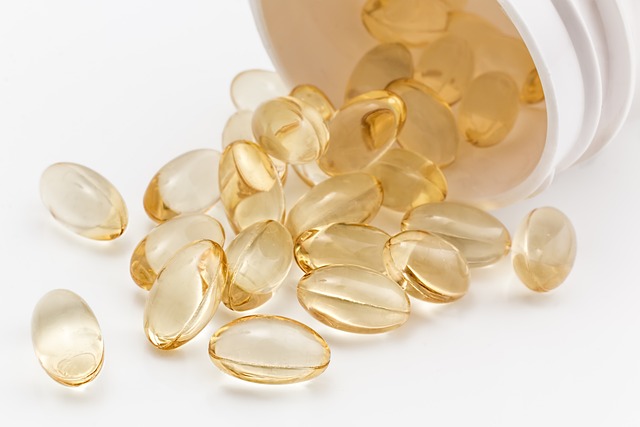Budget-Friendly Supplements for Men 50+ in the United States: A Guide to Calcium, Vitamin D, B12 and Third‑Party Testing
Older adults often absorb less vitamin D and B12, which raises risks to bone and nerve health. This guide is for men 50+ in the United States and explains which supplements to focus on (calcium, vitamin D, B12), how to confirm third‑party testing, what safety warnings to watch for, and practical, cost-conscious purchasing steps.

Why calcium, vitamin D and B12 are important after 50
As men grow older, changes in the gastrointestinal tract and reduced stomach acid can lower absorption of several nutrients. Three commonly needing attention are:
- Calcium: Critical for bone strength and also involved in muscle and cardiac function. Getting calcium from food is preferred; supplements are used when dietary intake falls short.
- Vitamin D: Necessary for calcium absorption and bone maintenance; it also supports immune and muscle function. Low 25(OH)D blood levels are common among older adults.
- Vitamin B12: Absorption often decreases with age, and deficiency can lead to anemia, neuropathy, and cognitive effects.
These nutrients are supported by evidence for screening and potential supplementation—but testing and clinical advice are important before starting.
Who should consider supplements and when to prioritize single nutrients
You might consider supplements if you have: - A diet low in dairy, fortified foods, or animal products (risk for B12 shortfall). - Documented malabsorption conditions (e.g., atrophic gastritis, pernicious anemia, GI surgery). - Low laboratory results (25(OH)D for vitamin D; serum B12 or methylmalonic acid when indicated). - Medications or medical conditions that hinder absorption.
When testing demonstrates a specific deficiency, clinicians typically recommend single‑nutrient supplements (such as vitamin D or B12 alone) rather than a broad multivitamin—this helps avoid unnecessary excess of other nutrients.
Practical, non‑promotional overview of commonly cited product types
Consumer reporting and testing commonly feature several product approaches (examples of product types and features you may encounter in the U.S. market):
- Budget multivitamin with broad coverage
- Many low‑cost multivitamins aim to cover basic needs, including B vitamins and sometimes calcium.
-
Seek third‑party verification (USP or similar) to lower the chance of mislabeling.
- Minimalist formulations targeting vitamin D and B12
-
Some focused products provide higher percentages of the daily value for D and B12 in a small regimen—helpful if you already get other nutrients from food.
- Practitioner‑grade/clinician‑oriented supplements
-
These are often manufactured with stricter quality controls and testing; they may be geared toward people with dietary restrictions or clinical needs. Check the label for vitamin forms and D dosing; some clinician brands include modest amounts of D and may require an additional D supplement based on lab results.
- Gummy or chewable options
- Easier for those who dislike pills, but frequently contain added sugars and may need multiple gummies per daily serving—consider carbohydrate and sugar content if relevant to metabolic health.
These categories reflect marketplace options, not endorsements. Across product types, third‑party testing and correct dosing are the priority.
How to verify third‑party testing and quality
Because dietary supplements are regulated differently than prescription drugs, independent testing helps confirm that the label matches the contents. Steps to check quality:
- Look for certification marks on the label such as USP (U.S. Pharmacopeia) or NSF International.
- Visit verifier websites (USP.org, NSF.org) to see if the product or facility is listed.
- See whether the brand publishes third‑party lab reports (for example, testing by Eurofins or IEH Laboratories) or participates in independent reviewers like ConsumerLab (membership needed for full reports).
- Confirm production in CGMP‑compliant facilities; some brands post audits or certificates.
- Favor products with transparent lab results and batch testing when available.
Third‑party testing lowers but does not eliminate all risk—ensure results are recent and relevant.
Safety red flags to avoid
- Products marketed as “male energy,” “male enhancement,” or OTC “ED” fixes: The U.S. Food and Drug Administration and independent labs have found some of these supplements contain undeclared prescription drugs (for example, sildenafil‑class compounds). They are risky, particularly if you take nitrates or other medications.
- Inconsistent B‑vitamin levels: Independent testing has shown some B vitamin supplements contain much more or much less of an ingredient than the label claims.
- Excessive doses of certain vitamins: Very high intakes of vitamin B6 (pyridoxine) can cause neuropathy; extremely high supplemental vitamin E has been linked in some studies to prostate risk. Avoid very large doses without clinical supervision.
- Claims that sound too good to be true: Promises of rapid fixes, sexual performance cures, or broad disease prevention from a single supplement should be viewed skeptically.
If you suspect a product contains undeclared drugs or contaminants, report it to FDA MedWatch or consult a clinician.
Safe dosing, testing and monitoring
- Test first when possible: Check 25(OH)D and B12 levels if deficiency is suspected. Your clinician can interpret results and recommend dosing.
- Stick to evidence‑based doses: Get dose recommendations from a healthcare professional rather than assuming “more is better.”
- Watch for interactions: Supplements can interact with prescription drugs (e.g., calcium and certain antibiotics; vitamin K and blood thinners).
- Monitor symptoms and labs: Periodic re‑testing of vitamin D and B12 is sensible after starting supplementation or if you have ongoing risk factors.
Budget‑smart shopping tips (informational)
- Prioritize third‑party‑tested products that address your specific gaps rather than buying broad mega‑doses.
- Compare cost per serving and the number of active days supplied, but don’t choose solely on price—quality and testing matter.
- Avoid paying for ingredients you don’t need (herbs or high‑dose antioxidants) unless recommended by your clinician.
- Consider a two‑product approach if necessary: a basic third‑party‑tested multivitamin plus a targeted D or B12 supplement if blood tests justify it.
- Buy from reputable retailers and verify certification seals and test reports online before purchasing.
When to see a clinician
- Before starting any new supplement if you take prescription medications or have chronic health issues.
- If you have symptoms of deficiency (fatigue, neuropathy, easy bruising, bone pain).
- To obtain targeted blood tests and personalized dosing advice.
- To avoid overlap with fortified foods, other supplements, or prescription therapies.
Quick checklist before buying any supplement
- Is there evidence of third‑party testing (USP, NSF, Eurofins, IEH)?
- Does the nutrient form match clinical guidance (e.g., methylcobalamin vs. cyanocobalamin for B12 in certain cases)?
- Is the vitamin D amount suitable for your lab results or clearly labeled?
- Are there potential interactions with your current medications?
- Are sugar or carbohydrate contents acceptable if selecting gummies?
Summary
For men aged 50 and over in the United States, calcium, vitamin D and B12 are common, clinically relevant priorities. The safest and most cost‑effective strategy is testing, clinical guidance, and selecting third‑party‑tested products that fill identified gaps. Be wary of male‑targeted “energy” or ED products without transparent testing and avoid excessive dosing without professional oversight. In 2025, independent testing and verification remain essential tools for safer supplement use.
Disclaimer: Prices and availability may vary by retailer and region; verify product certification and current availability before purchasing. Always consult a healthcare professional for personalized medical advice.
Sources
- Healthline. “Best Multivitamins for Men: Top 5 Picks From A Dietitian.” https://www.healthline.com/nutrition/best-multivitamins-for-men
- ConsumerLab. “Product Reviews and Information for Energy and Supplements.” https://www.consumerlab.com/energy/




